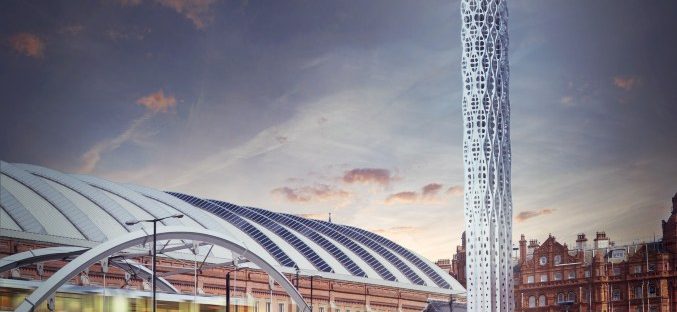Manchester city council behind on quarterly reductions in carbon emissions
- Environment and climate change scrutiny committee says council is behind in reductions in carbon emissions
- Councillor Annette Wright: 'We haven’t got a grip on the city’s carbon emissions'
- Solar power to be used as sustainable source of electricity for council in future
Manchester’s environment and climate change scrutiny committee was told that the council is unlikely to meet its quarterly reductions in carbon emissions.
The council has already used 21% of the emissions budget for the year in the first quarter between April and June 2021.
It’s an uphill battle for the council as the first quarter is traditionally one of the lowest ones, with less energy consumption being used during the summer months and emissions peaking in winter.

Councillor Annette Wright told the meeting: “I’m more concerned than I was before this meeting.
“If we are not hitting the 13% at this time of year, there should be no expectation that we will hit it in the third and fourth quarter.”It was suggested that the council needs to engage all sources of expertise within the city, such as Climate Emergency Manchester and the Tyndall Centre, to drive through progress.
Councillor Linda Foley said: “Is there anyway the partnership can bring together with urgency the expertise in Manchester to help develop the plan.”
It is apparent the short-term problems need to be solved first before the council can keep up with its pledge to halve carbon emissions by 2025 and become carbon zero by 2038, she said.
The committee recommended that officers arrange a briefing session for members on the modelling that was used to targets reported in the action plan and that a climate clock in the city be established to highlight the urgency of the situation.
The main strategy discussed to help Manchester reduce its carbon emissions is a large solar power facility on the south coast of England, funded by the council.
The council hopes the solar farm will provide a sustainable long-term energy source to meet the city council’s needs and help shift its carbon needs to a sustainable source.
Biodiversity
Councillor Igbon said: “It was a delight to find out that we are out there researching to find alternative energy sources, not just for the council but for residents and businesses as well.
“I like most would have preferred the solar plant was in Manchester, but there is no place in the city big enough to build one.”
There were concerns raised over the lack of science included in the report and that the council is solely focusing on solar power and writing off sources such as wind power.
Councillor John Flanagan said: “The report says that the solar farm will be future-proof, so can we have the science in a document to interrogate whether it is?
£We should bite the bullet now to try and future-proof our whole electricity needs.”
However, officers said it was a complicated picture when it came to the solar plant, including availability of land and biodiversity.
The council are making sure they select the site carefully to get the best return on their investment: for every pound the council spends on the solar farm the return would be 20% more if the site was in southern England.
The committee recommended that the council makes the report on the solar farm easier to visualise for the public and that the executive works with Greater Manchester and areas further afield to lobby for the increased delivery of onshore wind power.
Speaking to NQ after the meeting, committee chair councillor Lee-Ann Igbon said: “The factors which have impacted how MCC meets its target reduction is a concern. Knowing that we are constrained by funding is a concern however constant small grants are helpful.”


